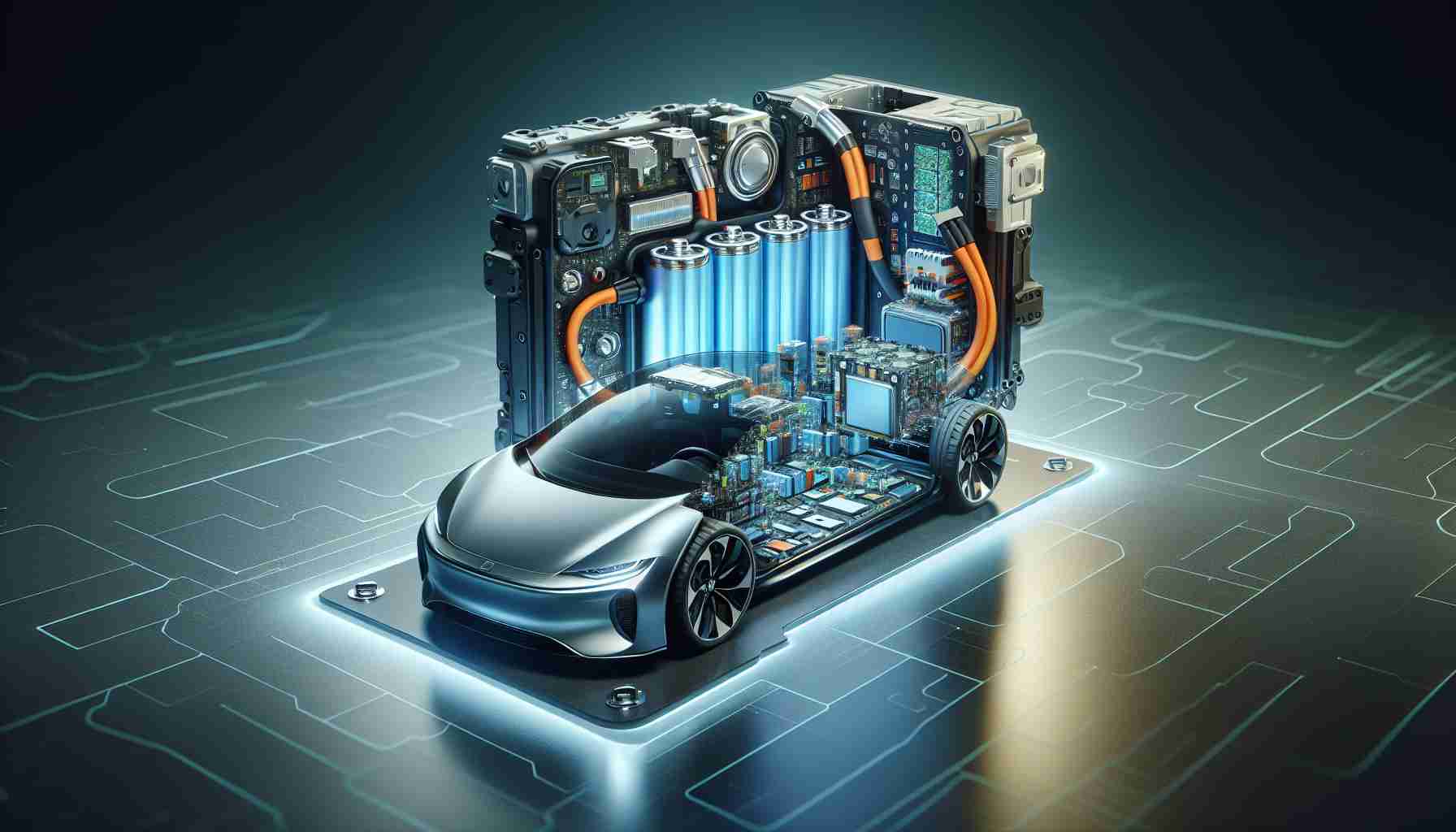A remarkable breakthrough in battery technology is making waves, thanks to the visionary work of engineers at Southern Methodist University (SMU). Led by mechanical engineer Donghai Wang, the research team is advancing lithium-sulfur (Li-S) battery technology, setting the stage for a revolution in renewable energy storage.
The Promise of Enhanced Energy Storage
The research focuses on overcoming longstanding challenges that have plagued lithium-sulfur batteries, specifically the issue of polysulfide dissolution, which has hindered their effectiveness. By addressing this problem, the team hopes to significantly enhance the longevity and energy capacity of these batteries.
At the core of this innovation is a hybrid polymer network cathode that enables Li-S batteries to achieve outstanding energy densities, reaching over 900 milliampere-hours per gram. This capacity greatly exceeds the performance of standard lithium-ion batteries, which typically range from 150 to 250 mAh/g. Moreover, the new cathode design offers superior cycling stability, meaning the batteries can be charged and discharged many more times before degradation occurs.
Overcoming Challenges
Despite the numerous benefits Li-S batteries offer, they have faced obstacles due to the troublesome behavior of sulfur in the electrode. The team’s innovative approach minimizes the issues related to the dissolution of polysulfides, potentially leading to more reliable and longer-lasting battery solutions. Their work not only highlights new possibilities in battery chemistry but also paves the way for more sustainable and efficient energy storage solutions in the future.
As this promising research progresses, it holds the potential to alter the landscape of electric vehicles and renewable energy technologies profoundly.
How Lithium-Sulfur Batteries Could Revolutionize the Global Energy Sector
Understanding the Impact on Communities and Economies
Lithium-sulfur (Li-S) battery technology’s advancements offer more than just technical improvements; they promise to transform how societies harness and utilize energy. This innovation could bring significant shifts to global energy practices, affecting everything from electric vehicle (EV) adoption to the stability of renewable energy grids, and it has profound implications for communities and economies worldwide.
Interesting Facts and Controversies
An interesting fact about Li-S batteries is their potential to reduce reliance on cobalt, a critical component in traditional lithium-ion batteries. Cobalt mining has been associated with human rights abuses and environmental concerns, particularly in the Democratic Republic of the Congo, which produces over 60% of the world’s cobalt. By minimizing or eliminating the need for cobalt, Li-S batteries offer a more ethical and environmentally friendly alternative.
However, this shift does not come without controversy. The production and scalability of these batteries pose logistical challenges, such as sourcing sulfur, which is another byproduct of the refining industry. Questions remain about whether current supply chains can adapt quickly enough to meet demand.
Advantages and Disadvantages
The most prominent advantage of Li-S batteries is their energy density, vastly superior to lithium-ion alternatives. This translates into longer-lasting batteries, with fewer recharges required—crucial for applications in electric vehicles, portable electronics, and large-scale renewable energy storage.
On the flip side, there’s debate over the robustness and practicality of scaling up production. While the SMU team’s advancements in cathode design help mitigate degradation, commercial implementation could face hurdles in manufacturing consistency and cost efficiency.
Questions Answered
– How will Li-S batteries affect electric vehicles?
Li-S batteries could significantly increase the range of electric vehicles, offering up to five times the efficiency of current lithium-ion batteries. This improvement may accelerate EV adoption by addressing ‘range anxiety,’ which is a significant barrier for many consumers.
– Are there environmental benefits to adopting Li-S technology?
Yes, fewer emissions are associated with mining and processing raw materials for Li-S batteries, particularly if cobalt use is reduced. Additionally, better energy storage could enhance the viability and stability of renewable power sources, decreasing dependency on fossil fuels.
– What are the challenges for companies in adopting these batteries?
Scalability and cost remain key challenges. While lab prototypes show promise, mass production requires overcoming technical hurdles, such as ensuring material consistency and achieving economies of scale to keep costs competitive.
Further Reading and Resources
For more information on advances in battery tech and its impact on the energy sector, readers can explore resources from the following links:
– US Department of Energy
– International Energy Agency
As Li-S batteries move from laboratory to market, they hold the potential to reshape the energy landscape, ushering in a new era of sustainable and efficient power solutions for all. While challenges remain, the future looks promising for transforming how we generate, store, and use energy worldwide.






















